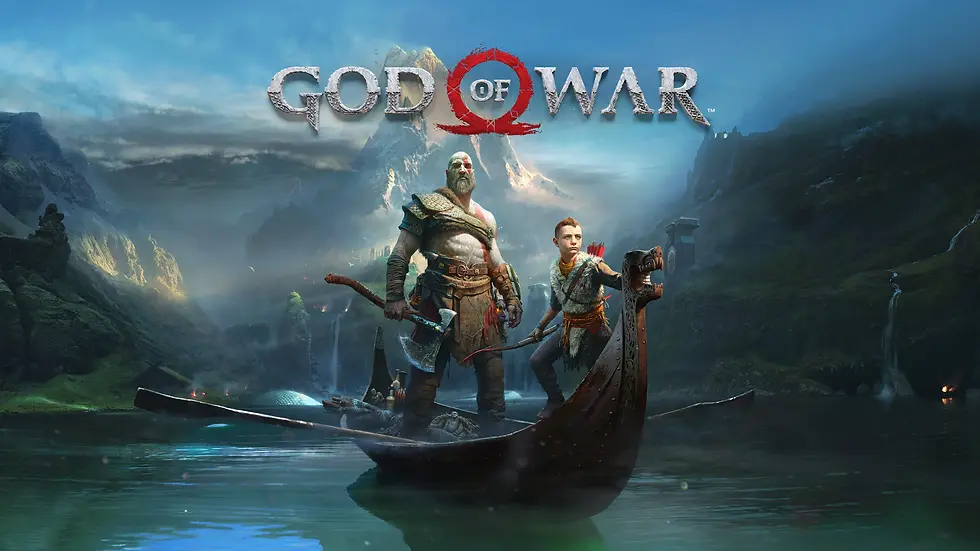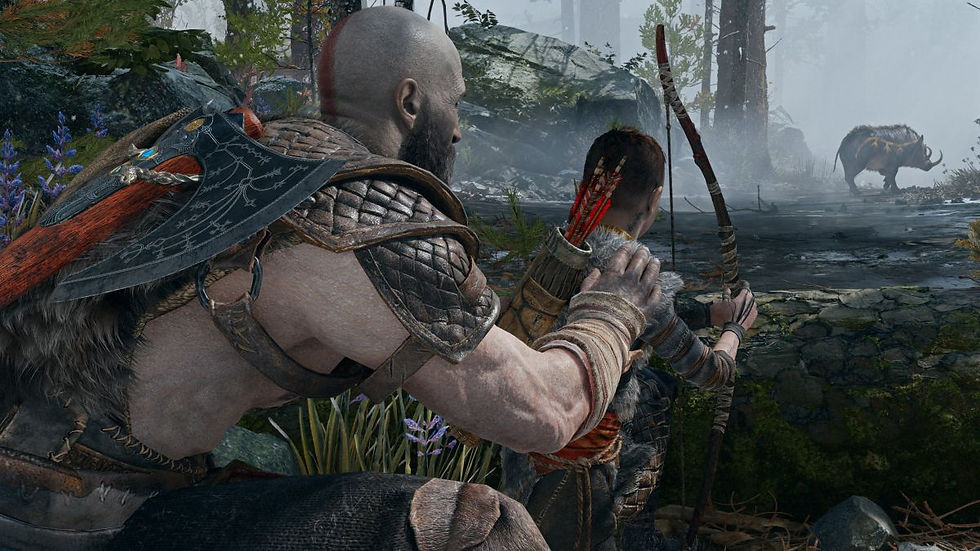
Muhammad Malik
Apr 21, 2023
" The Transformation of Kratos in God of War 4”

(Images Credits: PlayStation Official Website)
Introduction
Kratos, the protagonist of the God of War series, has undergone a significant transformation throughout the franchise. In God of War 4, the Ghost of Sparta has changed from a rage-filled, vengeful character to a more empathetic, patient, and wise father figure. This character study explores the growth of Kratos in God of War 4 and how he has become a role model for newer generations. By examining the development of Kratos' relationships, interactions, and internal struggles, we can better understand how his character has evolved and the lessons he imparts for players and fans alike.
Kratos' Evolution in God of War 4
1. Personal Growth
The earlier games in the God of War series depicted Kratos as a ruthless warrior seeking vengeance against the gods who betrayed him. He was driven by rage and had little regard for the consequences of his actions. However, in God of War 4, Kratos has matured significantly. He has left behind his past and the Greek pantheon and now resides in the Norse realm of Midgard, where he has started a family with his wife, Faye, and their son, Atreus.
In the beginning, Kratos still harbors traces of his former self; he is distant from his son and struggles to control his anger. However, as the game progresses, players witness a gradual change in Kratos' demeanor. He learns to become more patient and understanding, eventually opening up to Atreus and teaching him valuable lessons about life, responsibility, and the consequences of one's actions. This growth is a testament to Kratos' ability to change and adapt, making him a relatable and inspiring figure for players.

(Images Credits: PlayStation Official Website)
2. Relationship with Atreus
Kratos' relationship with his son, Atreus, is one of the core aspects of God of War 4. The game starts with the passing of Faye, leaving Kratos with the responsibility of raising their son alone. Initially, Kratos struggles to connect with Atreus, as he is unsure how to express his emotions and be a nurturing parent.
As they embark on a journey to scatter Faye's ashes at the highest peak in the realm, Kratos' interactions with Atreus become more open and honest. They encounter various challenges and enemies along the way, forcing them to work together and trust one another. This shared experience strengthens their bond, and Kratos begins to see the potential in his son, as well as the importance of his role as a father.
Throughout the game, Kratos teaches Atreus important values such as humility, self-control, and the importance of empathy. He shares his past mistakes and the lessons he has learned from them, instilling in Atreus a desire to be a better person. In doing so, Kratos takes on the mantle of a teacher and a mentor, demonstrating that he has transformed from a vengeful warrior to a wise and nurturing father.
3. Confronting His Past
Another significant aspect of Kratos' character development in God of War 4 is his confrontation with his past. As Kratos and Atreus journey through the Norse realm, they uncover more about Faye's true identity, as well as the prophecy surrounding their family. This revelation forces Kratos to come to terms with his past actions and the potential consequences of his previous life.
Kratos eventually reveals his past to Atreus, admitting that he was once a god who killed his own father, Zeus. By sharing this information, Kratos takes an important step toward redemption, acknowledging his past and embracing the opportunity to change. This openness demonstrates Kratos' emotional growth and highlights the importance of accepting one's past to forge a better future.
Furthermore, Kratos' confrontation with Baldur, the Norse god of light, serves as a parallel to his previous struggles. Baldur seeks vengeance against his mother, Freya, for cursing him with invulnerability, which has caused him to feel isolated and detached from the world. Kratos recognizes his own past rage in Baldur and ultimately tries to reason with him, emphasizing the importance of forgiveness and the futility of revenge.
By preventing Atreus from following in his footsteps and showing him a different path, Kratos displays his newfound wisdom and understanding. This moment represents a significant turning point in Kratos' journey, as he actively breaks the cycle of violence and revenge that has plagued his life.

(Images Credits: PlayStation Official Website)
4. Embracing Humanity and Compassion
Throughout God of War 4, Kratos' character growth is evident in his increasing empathy and compassion for others. Although he initially sees their journey as a means to fulfill his wife's final wishes, he soon recognizes the importance of helping those in need and protecting the innocent.
Kratos' compassion is showcased in several instances throughout the game, such as when he aids Freya in healing her boar companion or when he confronts the spirit of a deceased king who has been tormenting his people. These moments not only highlight Kratos' evolving moral compass but also serve as important lessons for Atreus, teaching him to prioritize the well-being of others and the value of compassion.
Role Model for Newer Generations

(Images Credits: PlayStation Official Website)
Kratos' transformation in God of War 4 serves as a powerful example for newer generations. His character arc demonstrates the importance of self-reflection, growth, and the ability to change. Kratos teaches players that it is never too late to embrace change and become a better person, regardless of one's past mistakes or regrets.
Additionally, Kratos' role as a mentor and father figure highlights the significance of empathy, compassion, and understanding in building relationships. By sharing his wisdom and experiences with Atreus, Kratos emphasizes the importance of learning from the past and making conscious choices to create a better future.
Finally, Kratos' journey serves as a reminder that personal growth is a continuous process, and that everyone has the capacity for change. By embracing vulnerability and accepting responsibility for his actions, Kratos becomes a powerful symbol of redemption, resilience, and growth. His story teaches newer generations that, despite past mistakes, everyone has the potential to become a better version of themselves.
Conclusion
In God of War 4, Kratos undergoes a remarkable transformation, evolving from a vengeance-driven warrior to a wise and nurturing father figure. Through his personal growth, relationship with Atreus, confrontation with his past, and embrace of humanity and compassion, Kratos becomes a role model for newer generations. His journey serves as a powerful reminder of the importance of self-reflection, empathy, and personal growth, demonstrating that change is possible for anyone willing to embrace it. By imparting these lessons, Kratos' character arc in God of War 4 serves as an inspiration for players and fans alike, showcasing the potential for redemption and growth that resides within us all.